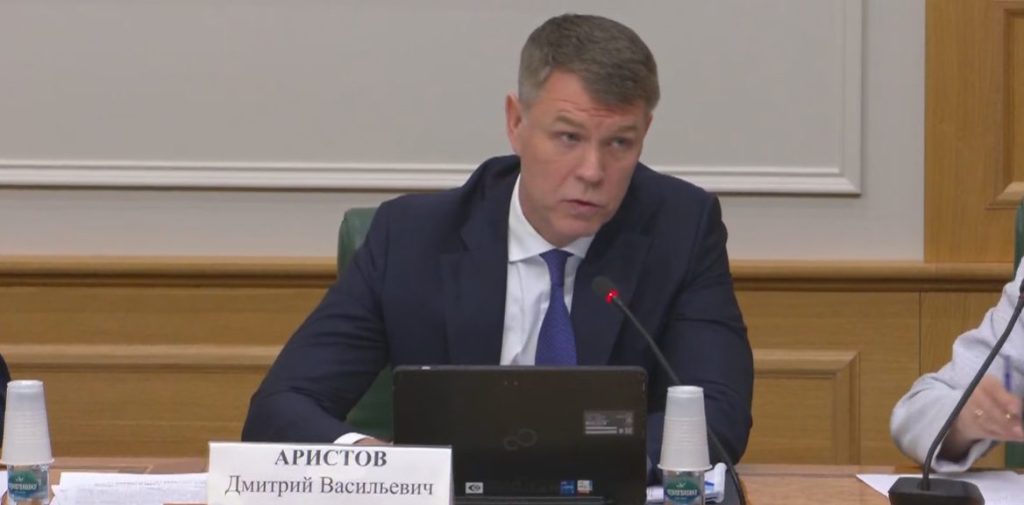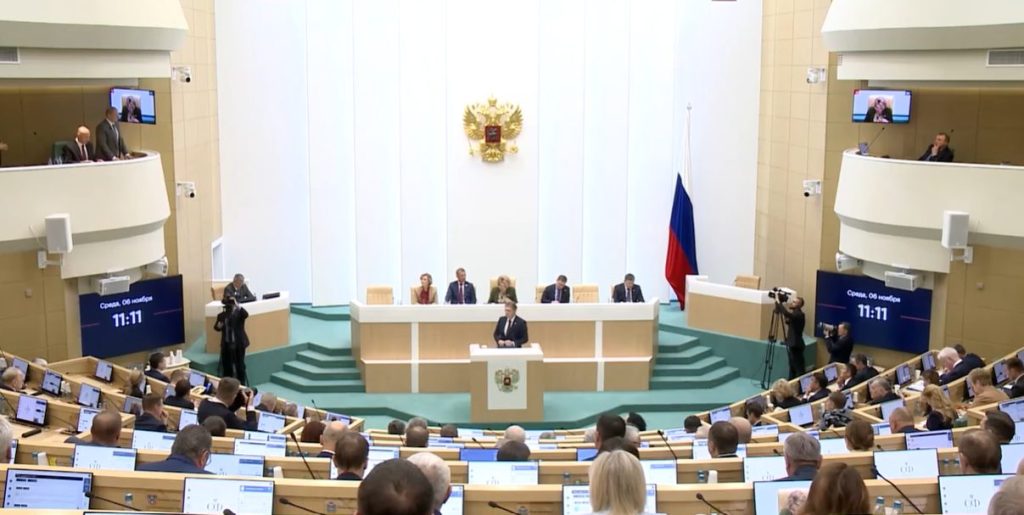Russian enforcement officials say they have developed a new method that will help convert Bitcoin (BTC) seized in criminal cases into cash from the Ministry of Finance.
A video posted on the Federal Council’s Letube page shows Dmitry Aristophe, head of the Federal Enforcement Service (FSSP), known as Bitcoin, is called “a problematic asset.”
Have you solved the Bitcoin issue for Russian enforcement officers?
Aristophe made his remarks at a meeting of the Federal Council Committee on Constitutional Legislation and State Buildings.
The council, also known as the Russian Senate, is the Senate of the Parliament.

Dmitry Aristophe, head of the Russian Federation Enforcement Services, speaks at the Federal Council. (Source: Federation Council/Rutube/Screenshot)
FSSP is currently working with “other related parties” on “mechanisms that turn Bitcoin into state revenue.”
Aristophe argued that FSSPs could use groundbreaking criminal cases legal precedents to guide further actions.
He claimed that this allows FSSP to seize BTC (and possibly other crypto assets). Now he added that he is “looking for a solution” to help law enforcement “sell” the coins.
The FSSP Head was speaking in response to questions from the Senator. The lawmaker asked him about the “protocol” of services to “confiscate cryptocurrency.”
“There is a legal precedent from criminal cases. We (forfeit) our Bitcoin token during the investigation.”
Dmitry Aristophe, Head of the Enforcement Service of the Russian Federation
But Aristophe said lawmakers need to act. He argued that a comprehensive solution to the issue of forfeiture of codes has not yet been finalized.
He then suggested that comprehensive solutions could remain out of reach until lawmakers deploy a bill that outlines the legal status of BTC and other coins.
Aristophe concluded that “first of all” Moscow needs to “legislatively establish” the position of Bitcoin in Russia.

Senator of the Russian Federation Council. (Source: Federation Council/Rutube/Screenshot)
A new code deadlock?
After years of political impasse from opposition stances on crypto regulations, Russia ultimately passed two important crypto-related laws last year.
One legalized crypto mining is as a recognized form of business activity. The other allowed Russian companies to use crypto as a payment tool for international trade within the scope of central bank-operated sandboxes.
But most critics and many top lawmakers agree that far more needs to be done. Much older laws banned the use of crypto as a means of payment within Russia.
The central bank has since signed a proposal to allow qualified investors to trade crypto within its sandboxes.
However, banks support more extreme measures. These include a complete ban on crypto exchanges operating outside the sandbox, and a ban on crypto investments in retail sectors and businesses.
However, Moscow appears to be divided into this issue. Several ministries and most major industrial miners support the regulation of crypto exchanges and crypto trading over the Chinese-style ban.
So the new deadlock appears to be in the way of legal clarity that FSSP wants to see.
Tambiev Case: Opening the legal door for enforcement officers?
Media outlet RBC appeared to suggest that Aristof may have mentioned the case of former Russian commission investigator Marattanbiev.
Marat Tambiev, former Russian investigator. (Source: Tass/Screenshot)
In 2024, Tambiev was found guilty of adopting Bitcoin bribes from an international fraud network. He was jailed for 16 years, and the enforcement officer confiscated 1,032 BTC.
In January this year, the Russian Treasury Ministry said it had “began to transfer” the funds. The Treasury has announced its initial plan to “sell” about $10 million worth of coins.
Tambiev, a district court who heard last year, obtained BTC from a member of the Infraud Organization Hacker Group in exchange for diverting the course of crime investigation into the group.
Last month, Moscow officials said they were working on a bill that would allow cryptographic devices as a form of property “for criminal litigation purposes.”
The government is reportedly “in light of the bill.” The Citizens’ Chamber of Commerce recently proposed creating a national fund for “forfeitured crypto assets.”
The Chamber of Commerce suggested that “revenues” from the sale of these “assets” could be used to fund “social projects.”
Post-Russian enforcement officials said “Criminal Bitcoin can be converted into state income” first appeared on Cryptonews.



